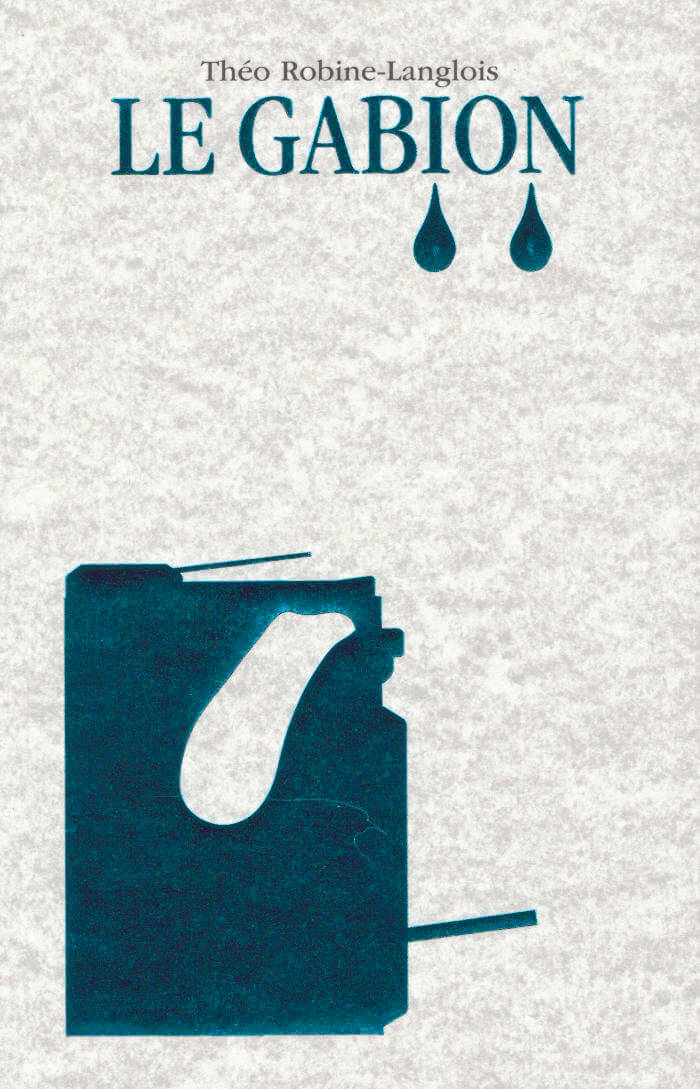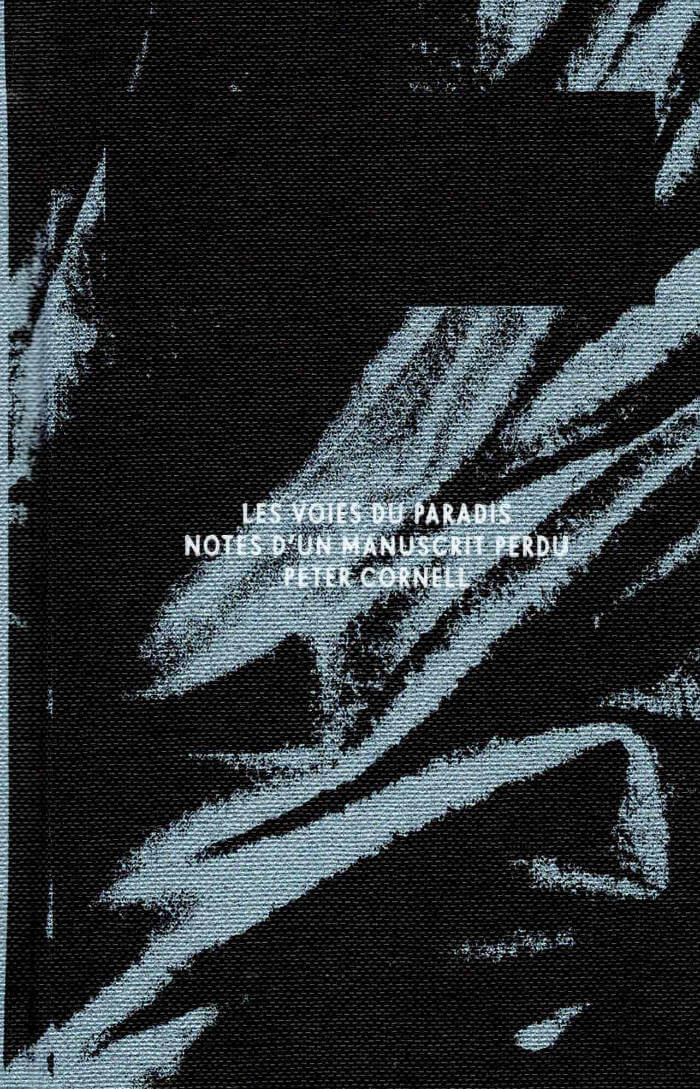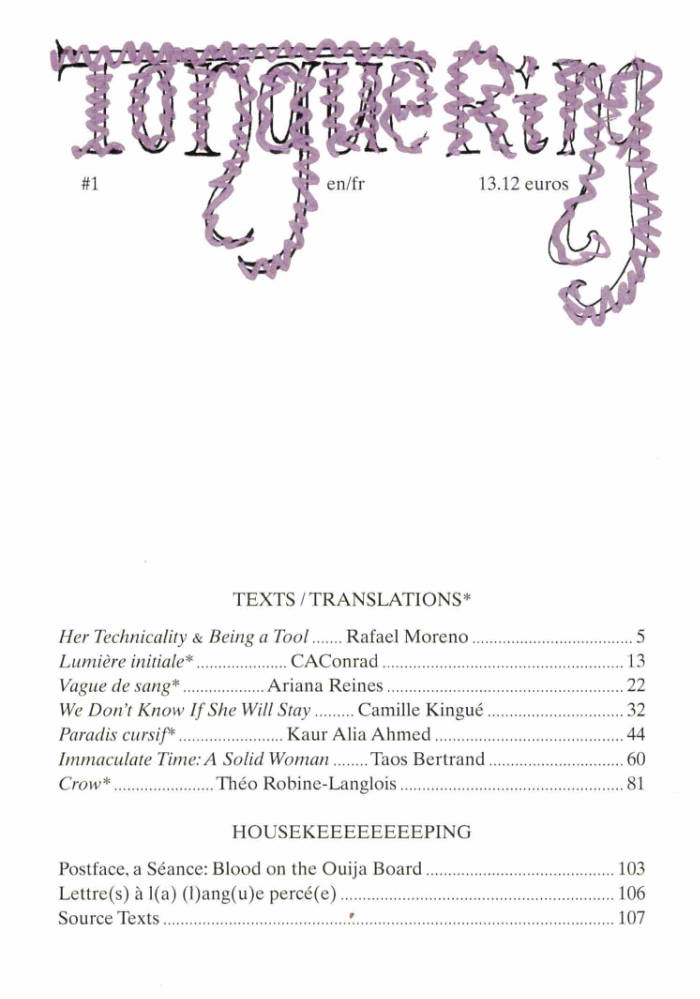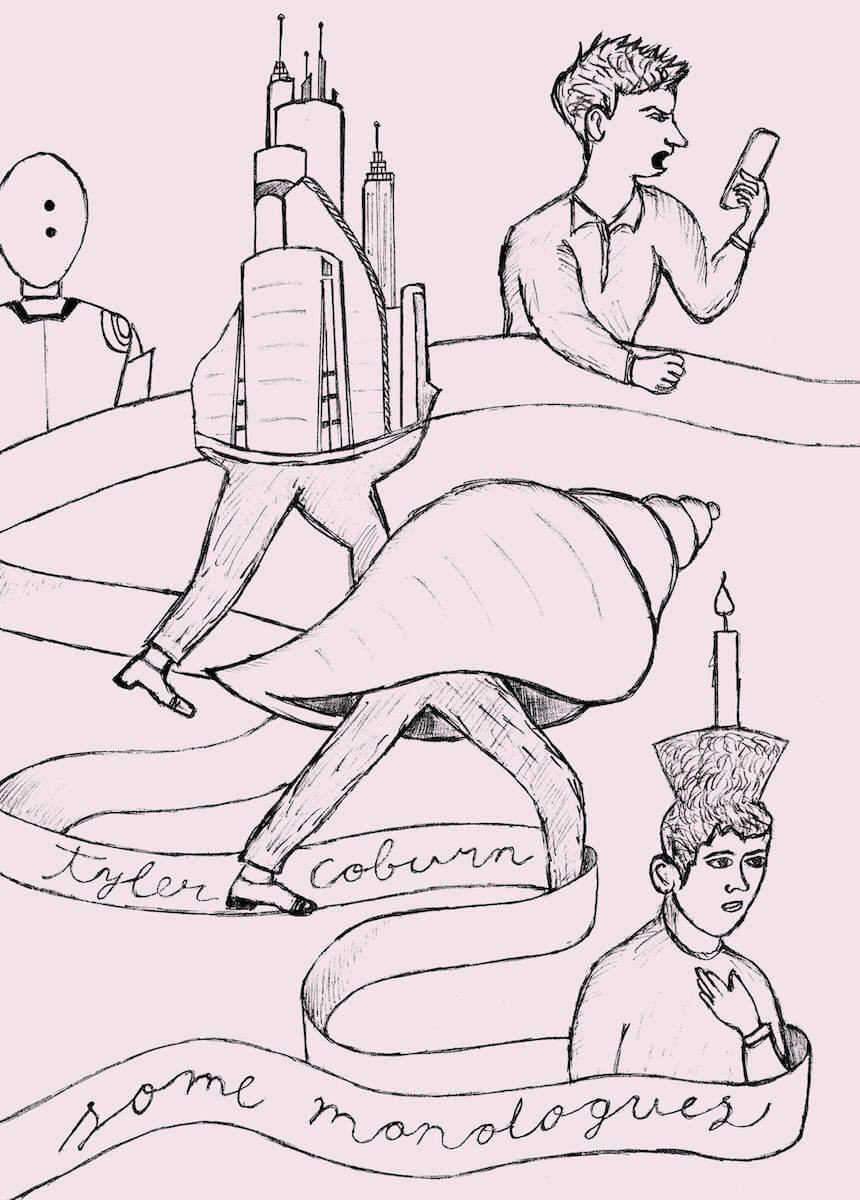
Le Gabion
Au départ, une simple anecdote: un gabion de chasse typique des marais normands se détache de son ancrage pour dériver dans l’Océan Atlantique, avec des chasseurs incapables de nager à son bord. Théo Robine-Langlois transpose cette histoire à une échelle interstellaire: le Gabion, vaisseau spatial chasseur d’astéroïdes conçu pour être attaché à la Terre, dérive dans l’espace. À la suite d’Anton, on traverse les différentes communautés qui peuplent le bâtiment, monde en soi où se côtoient et s’affrontent des mœurs, des modèles de société, et surtout des formes de langage. Anton, lui, tente d’échapper à celui qui prétend régir le vaisseau, en récoltant des photocopies éparpillées dans ses méandres, jusqu’à son mystérieux cœur...
Empruntant au roman d’apprentissage autant qu’à la science-fiction, Le Gabion est aussi une chanson de geste: une odyssée symbolique où la langue et la figure de l’auteur sont traités de manière expérimentale, comme faisant partie du récit lui-même. Les langues que parlent les personnages contaminent le livre, qui se construit comme un montage où poésie, philosophie, histoire littéraire, hip hop et échanges SMS se rejoignent. En parcourant le Gabion, les lecteur.trice.s rencontrent différents rapports au langage, qui se concrétisent à la fin du livre par l’élection d’un maire de banlieue parisienne.
Le Gabion poursuit le travail entamé par Théo Robine-Langlois dans son premier livre, [...], où le subterfuge typographique des points de suspension entre crochets signifiait à la fois l’existence de trous dans la langue, d’échappatoires dans l’imaginaire, et de nuages dans le ciel. Dans Le Gabion, on peut se cacher dans un paragraphe, lire entre les lignes d’un manuel de photocopieuse, se battre avec des missiles-poèmes, rencontrer des enfants sanguinaires et des sororités féministes. On traverse également plusieurs siècles de poésie française, des troubadours à Henri Chopin ou Hélène Bessette.
Texte en Français







